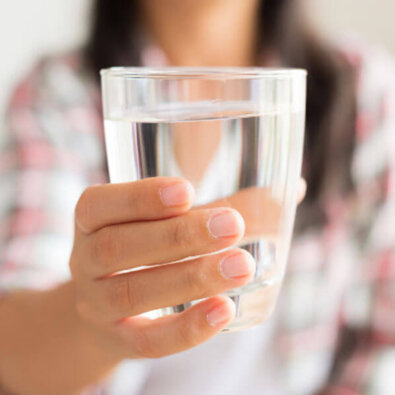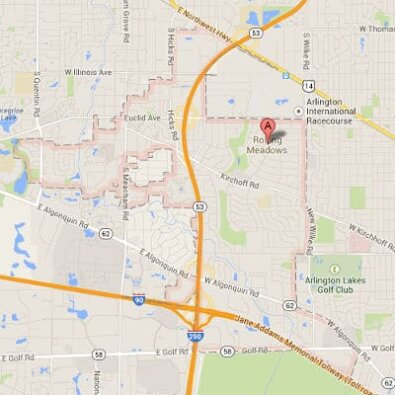Facing hard water issues in Rolling Meadows, IL? Angel Water understands the unique water challenges in this area. Our premium water softening systems are designed to remove excess calcium and magnesium, ensuring you have soft, clean water for your home or business. With over 50 years in the water treatment industry, we are dedicated to enhancing your water quality and ensuring your complete satisfaction.
Water Softeners in Rolling Meadows, IL
How Do I Choose the Right Water Softener and Get Started?
Begin with a water test to identify the issues in your water. Understanding the contaminants and your water source helps us develop a solution. We then perform a plumbing inspection to determine the best installation spot. Finally, we decide on the type and size of the necessary equipment.
Thinking, “Can’t you just tell me over the phone? You installed my neighbor’s system!” We understand – we’re consumers too. However, your neighbor’s water or plumbing might differ slightly from yours. Our goal is to ensure you have perfect water for drinking and bathing. We provide unbiased third-party water testing and employ licensed plumbers as required by Illinois law, prioritizing your family’s health and well-being.
Why Choose Angel Water?
Expertise:
Over 50 years of experience in resolving water quality issues.
Advanced Technology:
Our water softeners use cutting-edge technology for efficient operation.
Customer Satisfaction:
Free water analysis and customized solutions tailored to your needs.
Qualified Professionals:
IDPH Licensed Plumbers in Illinois ensure high-quality service and regulatory compliance.
Highly Rated:
Over 1,000 5-star ratings on Google demonstrate our commitment to excellent service.
Licensed Plumbing Company:
The only water softening company in Illinois that is also a licensed plumbing company.
Lifetime Warranty:
The only company offering a lifetime warranty on our ERR-3700 series filters.
A+ BBB Rating:
An A+ rating with the Better Business Bureau shows our commitment to quality service.
Benefits of Water Softening
Prevent Scale Buildup:
Soft water helps prevent scale buildup in pipes and appliances, extending their lifespan.
Better Cleaning:
Enjoy cleaner dishes, softer laundry, and easier cleaning.
Improved Skin and Hair:
Soft water is gentle on skin and hair, reducing dryness and irritation.

Water in Rolling Meadows, Illinois
Rolling Meadows has been receiving its water from Lake Michigan since 1986. All the water the city receives has already been treated. This water is transferred to Rolling Meadows through the Northwest Suburban Joint Action Water Agency, located near O’Hare Airport. There are three delivery points throughout the city that regulate incoming flow. There are four deep wells and emergency generators if there were to be an emergency.
According to an article in the Huffington Post, an alarming amount of traces of prescription drugs, caffeine and other chemicals were found in testing water samples from Lake Michigan. The past belief was that the solution to pollution is dilution when dealing with large bodies of water, but tests prove this is not the case.
Wikipedia: https://en.wikipedia.org/wiki/Rolling_Meadows,_Illinois
3 contaminants above legal limits.
In some states a small percentage of tests were performed before water was tested, and some contaminants were subsequently removed or diluted. As a result, some reported levels of contamination may be higher than were present at the tap. Results shown are based on individual samples and may not indicate a violation of the Safe Drinking Water Act, which often occurs only after prolonged tests show concentrations above a legal limit.
| Contaminant | Maximum Result | Legal Limit |
| Alpha Particle Activity | 27 PCI/L | 15 |
| Radium-226 and -228 | 8 PCI/L | 5 |
| Radium 226 | 12.5 PCI/L | 5 |
1 Contaminants below legal limits, but above health guidelines.
| Contaminant | Average Result | Health Limit |
| Radium-228 | 3.03 PCI/L | 0.02 |
16 Contaminants found within health guidelines and legal limits.
| Contaminant | Average Result | Health Limit |
| Barium (total) | 37.75 PPB | 2000 |
| Bromodichloromethane | 7.11 PPB | 100 |
| Bromoform | 0.06 PPB | 800 |
| Chloroform | 13.04 PPB | 70 |
| Copper | 2.98 PPB | 1300 |
| Di(2-ethylthexl) phthalate | 0.60 PPB | 300 |
| Dibromoacetic Acid | 0.22 PPB | – |
| Dibromochloromethane | 3.68 PPB | 60 |
| Dichloroacetic Acid | 5.73 PPM | 70 |
| Manganese | 6.75 PPB | 300 |
| Mercury (total inorganic) | 0.05 PPB | 2 |
| Monobromoacetic Acid | 0.34 PPB | – |
| Monochloroacetic Acid | 0.45 PPB | 70 |
| Total Haloacetic Acids | 13.10 PPB | 70 |
| Total Trihalomethanes | 31.52 PPB | – |
| Trichloroacetic Acid | 6.35 PPB | 20 |
*As reported by the NY Times Toxic Water Report.
Local Water Polluters near Rolling Meadows, IL
Arlington Plating Company (900 Carnegie Street, Rolling Meadows, Illinois 60008) – 4 Violations
- 2008 – 4 permit violations
Menards (3650 Berdnick Blvd, Rolling Meadows, Illinois 60008) – 9 Violations
- 2004 – 2 effluent violations
- 2005 – 1 effluent violation
- 2006 – 3 effluent violations
- 2007 – 2 effluent violations
- 2008 – 1 effluent violation
About Rolling Meadows
Located in Cook County, about 24 miles from the Northwest Loop, the area of Rolling Meadows was first settled by a gentleman named Orrin Ford. When Ford claimed his 160 acres of land, the area that is now known as Rolling Meadows was mostly comprised of forests and rolling terrain. Farming families followed Ford, many of them migrating from Vermont. By the beginning of the 1840s, the area’s settlers had laid claim to the entire area now known as Plum Grove and built a dam across Salt Creek.
As more German settlers arrived by 1850, the area became part of the newly established Palatine Township. In 1862, development had begun, most notably the erection of the Salem Evangelical Church, whose cemetery stood at the corner of Plum Grove and Kirchoff Roads. Development continued into the early 1900s when H.D. Brown purchased 1,000 acres of land to build a racetrack and adjacent golf course in the area that would become Rolling Meadows.
With construction of the racetrack and golf course stalled, Kimball Hill purchased a portion of the land to begin selling homes through an advertisement in the Chicago Tribune. Everything was going well and interest in the homes was high, but residents of the nearby Arlington Heights had plans to purchase the land and use it for estate homes. Although the Arlington Heights residents protested the development, the prospective buyers of Hill’s homes were able to convince Cook County to approve the development.
By 1953, the first homeowners began moving into the development, which Hill later officially named Rolling Meadows. The production schedule was set for 20 houses weekly and 700 houses were sold by 1955. The majority of the residents of Rolling Meadows were blue-collar workers and Hill went as far as donating $200 for every home he sold towards building a local school district, which would later fund building and outfitting the first elementary school. Hill also provided land for parks and even funded the building and opening of the Clearbrook Center, a home for the mentally handicapped in 1955.
The town was incorporated in 1955 with the name Rolling Meadows and town’s economy boomed throughout the 1950s and 1960s as more business moved to the area. By 200, Rolling Meadows’ population had grown to over 24,000 residents, with a population that is 19 percent Hispanic, 7 percent Asian, and 3 percent African American. The city also began revamping their commercial areas, located along Kirchoff Road, including corporations such as 3Com, Charles Industries, and Helene Curtis.

How do I know what system is right for my family?
Get Started With A Free Water Test!
Just fill out the form below and we will reach out to schedule the best time for your free water test!
Would You Like to Know More About Water Quality in Rolling Meadows?
If you want to understand the quality of the water your family depends on everyday, contact us today. One of our representatives is standing by to help you schedule your free water test. We’ll send one of our local water expert to test the water at your tap and explain common problems and solutions for your specific water composition so that you can rest easy, knowing that your family is drinking the healthiest water possible.
